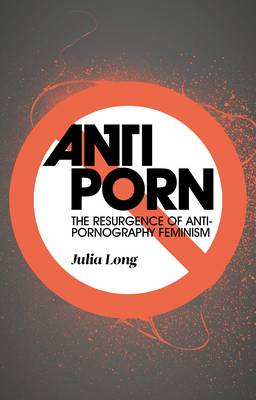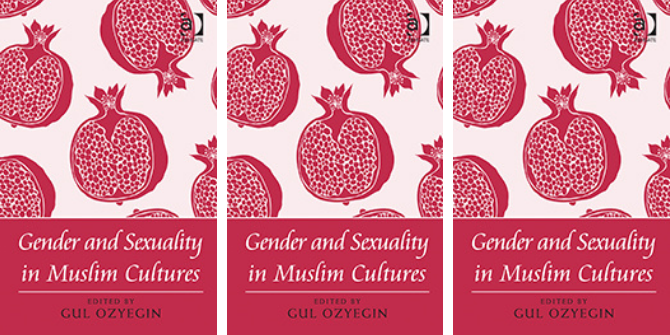Since launching in April 2012, LSE Review of Books has published reviews of over 900 books from across the social sciences. Here are the top five most-read gender studies reviews from 2013, covering the intersections of race and gender, body politics, and anti-pornography movements. Thank you to all of our generous reviewers for their time and enthusiasm.
………………………………………………………………………………………………………………..
 Neurofeminism: Issues at the Intersection of Feminist Theory and Cognitive Science
Neurofeminism: Issues at the Intersection of Feminist Theory and Cognitive Science
 Neurofeminism is the first interdisciplinary collection of essays to address how recent neuroscience affects traditional feminist issues. Philosophers, psychologists, sociomedical scientists, and feminist scholars explore questions of ‘feminine’ ethics, feminist neuroscience, and overcoming unhelpful pop science books. Reviewed by Dafne Muntanyola-Saura.
Neurofeminism is the first interdisciplinary collection of essays to address how recent neuroscience affects traditional feminist issues. Philosophers, psychologists, sociomedical scientists, and feminist scholars explore questions of ‘feminine’ ethics, feminist neuroscience, and overcoming unhelpful pop science books. Reviewed by Dafne Muntanyola-Saura.
Neurofeminism is a collection of eleven essays on the critical relationship between feminist theory and neuroscience. Feminist neuroscience gathers a diverse crowd; the authors (including volume editors Robyn Bluhm, Anne Jaap Jacobson and Heidi Lene Maibom) mostly come from the disciplines of Philosophy, Psychology, and Women Studies, with others being neuroscientists, biologists and engineers. Read the full review… ……………………………………………………………………………………………………………….
 Presumed Incompetent: the Intersections of Race and Class for Women in Academia edited by Gabriella Gutierrez y Muhs
Presumed Incompetent: the Intersections of Race and Class for Women in Academia edited by Gabriella Gutierrez y Muhs
 In Presumed Incompetent, through personal narratives and qualitative empirical studies, over 40 authors expose the daunting challenges faced by academic women of colour as they navigate the often hostile terrain of higher education, including hiring, promotion, tenure, and relations with students, colleagues, and administrators. Sin Yee Koh concludes that this is a must-read work, inspiring us to think carefully about the kinds of legacies we leave for the next generations.
In Presumed Incompetent, through personal narratives and qualitative empirical studies, over 40 authors expose the daunting challenges faced by academic women of colour as they navigate the often hostile terrain of higher education, including hiring, promotion, tenure, and relations with students, colleagues, and administrators. Sin Yee Koh concludes that this is a must-read work, inspiring us to think carefully about the kinds of legacies we leave for the next generations.
Academia is supposed to be a neutral space for the pursuit of human knowledge. As a hallmark of intellectual meritocracy, it is supposed to recruit and reward fairly. Yet, we know that in reality many groups are under-represented across university faculties. In 2007, women of colour held 7.5 per cent of full-time faculty positions in America (p.2). They are expected “to blindly follow … an imaginary and supposedly ethical yellow brick road” (p. 501). Upon arrival in the academic sphere, many encounter discriminatory practices, invisible walls, and glass ceilings, where race, gender, and class hierarchies matter, but are disguised through a rhetoric of incompetency. Read the full review…
……………………………………………………………………………………………………………..
 The Unfinished Revolution: Voices from the Global Fight for Women’s Rights edited by Minky Worden
The Unfinished Revolution: Voices from the Global Fight for Women’s Rights edited by Minky Worden
 Women’s rights have progressed significantly in the last two decades, but major challenges remain in order to end global gender discrimination. The Unfinished Revolution outlines the recent history of the battle to secure basic rights for women and girls, including in the Middle East where the hopes raised by the Arab Spring are yet to be fulfilled. Featuring essays by more than 30 writers, activists, policymakers and human rights experts, Natalie Novick concludes that the book’s thoughtful organization and structure make it easily accessible to anyone interested in human rights, women’s issues or global inequalities.
Women’s rights have progressed significantly in the last two decades, but major challenges remain in order to end global gender discrimination. The Unfinished Revolution outlines the recent history of the battle to secure basic rights for women and girls, including in the Middle East where the hopes raised by the Arab Spring are yet to be fulfilled. Featuring essays by more than 30 writers, activists, policymakers and human rights experts, Natalie Novick concludes that the book’s thoughtful organization and structure make it easily accessible to anyone interested in human rights, women’s issues or global inequalities.
At 15, Elise was taken from her home by soldiers to be kept as a sex slave. Stripped naked and trapped in a hole, she was raped daily before escaping six months later. Elsie’s experience unfortunately is not isolated in her home of the Democratic Republic of the Congo. The UN has estimated over 200,000 women and girls have been subject to sexual violence in the DRC since 1998. However, so often when comprehending the magnitude of these injustices, individual stories like Elise’s are lost. Read the full review…
……………………………………………………………………………………………………………..
 The Becoming of Bodies: Girls, Images, Experience by Rebecca Coleman
The Becoming of Bodies: Girls, Images, Experience by Rebecca Coleman
 The relationship between bodies and images has long occupied feminism, and this book offers an alternative framework for analysis. Thinking through her original empirical research with teenage girls, involving focus groups, individual interviews and image-making sessions, Rebecca Coleman moves from a consideration of media images – the focus of much feminist research – to examine images more widely; as mirrors, photographs, glimpses, comments, imagination. Nicole Shephard finds that the book is also of methodological interest in terms of bridging a perceived divide between theory and empirical work in cultural studies.
The relationship between bodies and images has long occupied feminism, and this book offers an alternative framework for analysis. Thinking through her original empirical research with teenage girls, involving focus groups, individual interviews and image-making sessions, Rebecca Coleman moves from a consideration of media images – the focus of much feminist research – to examine images more widely; as mirrors, photographs, glimpses, comments, imagination. Nicole Shephard finds that the book is also of methodological interest in terms of bridging a perceived divide between theory and empirical work in cultural studies.
After the turn of a new year, it is virtually impossible to fail to notice the fervour with which personalised online advertising and magazines encourage new year’s resolutions including revolutionary diets, the latest fitness crazes and other methods on how to look young, slim and conventionally beautiful, in a cisgendered and heteronormative way, make the relevance of body images inescapable. What is the potential impact of these media images on the bodies and minds of women and girls? Read the full review…
……………………………………………………………………………………………………………………
 Anti-Porn: The Resurgence of Anti-Pornography Feminism
Anti-Porn: The Resurgence of Anti-Pornography Feminism
 Countering the ongoing ‘pornification’ of Western culture and society, with lads’ mags on the middle shelf and lap-dancing clubs in residential areas, anti-porn movements are re-emerging among a new generation of feminist activists worldwide. This guide to the problems with porn starts with a history of modern pro and anti political stances before examining the ways in which the new arguments and campaigns around pornography are articulated, deployed and received. If you’re looking for a history of anti-porn activism, this is a good start. But if you’re looking for an argument against pornography, this book fails to deliver, writes Stephanie Spoto.
Countering the ongoing ‘pornification’ of Western culture and society, with lads’ mags on the middle shelf and lap-dancing clubs in residential areas, anti-porn movements are re-emerging among a new generation of feminist activists worldwide. This guide to the problems with porn starts with a history of modern pro and anti political stances before examining the ways in which the new arguments and campaigns around pornography are articulated, deployed and received. If you’re looking for a history of anti-porn activism, this is a good start. But if you’re looking for an argument against pornography, this book fails to deliver, writes Stephanie Spoto.
Dr Julia Long, a radical lesbian feminist, makes a contribution to debates on pornography in her latest book, Anti-Porn: The Resurgence of Anti-Pornography Feminism. Focusing on anti-porn activism in the UK, she voices a hard-lined zero-tolerance approach through the lens of grassroots feminist groups and their campaigns against pornography, lap dancing clubs, and the pornification of high streets, such as in the instance of Playboy opening a shop on Oxford Street in London. Read the full review… ………………………………………………………………………………………………………………………..







